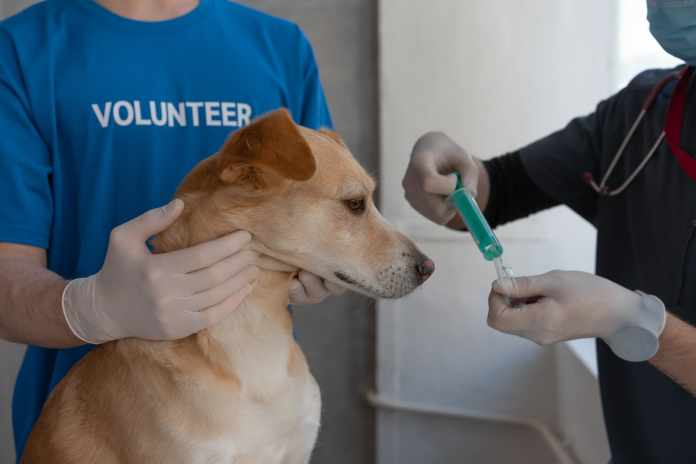Russia claims to register the first-ever coronavirus vacOSU Jerseys OSU Jerseys custom football jerseys 49ers jersey Florida state seminars jerseys College Football Jerseys OSU Jerseys florida state football jersey 49ers jersey Florida state seminars jerseys detroit lions jersey College Football Jerseys florida state football jersey ohio state jersey Florida state seminars jerseys cine for animals. Their state media, TASS revealed the news.
Konstantin Savenkov, deputy head of Federal Service for Veterinary and Phytosanitary Surveillance, quoted saying that clinical trials of the vaccine had started in October. The vaccine is named Carnivak-Cov and can be given to cats, dogs, minks, foxes, and Arctic foxes.
Further, Savenkov said that it is a sorbate inactivated dosage to keep carnivorous animals protected from coronavirus. The Federal Center for Animal Health of Rosselkhoznadzor registered the vaccine in Russia. As of now, it is the only vaccine in the world that prevents coronavirus for animals.
Coronavirus Vaccine for Animals
Carnivak-Cov can last for six months and prevent types of mutation the virus is going through. According to Russia, the vaccine is safe to use and leaves a robust immunogenic effect. Vaccinated animals grow antibodies to protect from the coronavirus. The results are 100% effective, says Savenkov.
From April 2021, the vaccine is likely to have mass production. The doses will be available for domestic animals, breeding companies, commercial firms in Austria, Poland, and Greece. Russia also states that countries like Singapore, Canada, and the US showed interest in this vaccine.
The scientists in Russia continue to research to determine how long the effect of vaccines can last in animals.
What does WHO state about COVID in animals?
WHO states that coronavirus is likely to have come from bats. However, there are no pieces of evidence to prove so. The organization has confirmed that animals can infect humans, which makes vaccination for them inevitable.
WHO states that coronavirus can happen to animals from humans in times when they come too close in contact with each other. However, the risk for animals to get it from humans is low.
Cats, big cats, dogs, minks, and gorillas are some of the mammals that have been infected with the coronavirus. WHO has shared the reports on the same. However, most animals got the virus due to being around people who have had coronavirus.



![Kyla Pratt Net Worth, Early Life, Career [2023] Kyla Pratt Net Worth](https://lessconf.com/wp-content/uploads/2023/06/Kyla-Pratt-Net-Worth-218x150.jpg)



